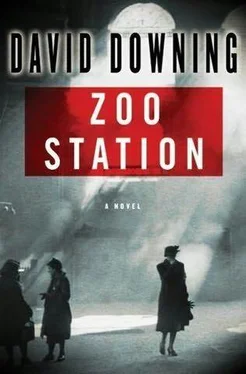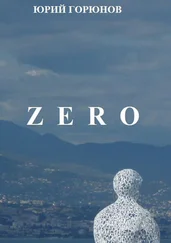David Downing - Zero Station
Здесь есть возможность читать онлайн «David Downing - Zero Station» весь текст электронной книги совершенно бесплатно (целиком полную версию без сокращений). В некоторых случаях можно слушать аудио, скачать через торрент в формате fb2 и присутствует краткое содержание. Жанр: Шпионский детектив, на английском языке. Описание произведения, (предисловие) а так же отзывы посетителей доступны на портале библиотеки ЛибКат.
- Название:Zero Station
- Автор:
- Жанр:
- Год:неизвестен
- ISBN:нет данных
- Рейтинг книги:5 / 5. Голосов: 1
-
Избранное:Добавить в избранное
- Отзывы:
-
Ваша оценка:
- 100
- 1
- 2
- 3
- 4
- 5
Zero Station: краткое содержание, описание и аннотация
Предлагаем к чтению аннотацию, описание, краткое содержание или предисловие (зависит от того, что написал сам автор книги «Zero Station»). Если вы не нашли необходимую информацию о книге — напишите в комментариях, мы постараемся отыскать её.
Zero Station — читать онлайн бесплатно полную книгу (весь текст) целиком
Ниже представлен текст книги, разбитый по страницам. Система сохранения места последней прочитанной страницы, позволяет с удобством читать онлайн бесплатно книгу «Zero Station», без необходимости каждый раз заново искать на чём Вы остановились. Поставьте закладку, и сможете в любой момент перейти на страницу, на которой закончили чтение.
Интервал:
Закладка:
They all said it, and some of them even believed it.
Their own daily lives were getting harder. Not dramatically, but relentlessly. The economic squeeze was on. Most people were working longer hours for the same pay; many ordinary goods were growing slightly harder to find. The relief which had followed the return of full employment had dissipated.
Children seemed to be looming ever-larger in their parent’s minds: the demands in time and loyalty of the Hitler Youth and BDM, the year’s exile of the arbeitsdienst, the prospect of seeing them marched off to war. If Ordinary Germans wanted anything, it was peace. Years of the stuff, years in which they could drive their people’s cars down their new autobahns.
Only one man mentioned the Jews, and then only in a dismissive preamble-“now that the Jewish question is nearing solution.” What did he mean? Russell asked. “Well,” the man replied, “they’ll all be gone soon, won’t they? I have nothing against them personally, but a lot of people have, and they’ll be happier elsewhere, that’s obvious.”
The Wiesners would have agreed with him. The girls seemed subdued when he saw them on Wednesday morning, polite and willing as ever, but less perky, as if more bad news had just descended on the household. One reason became clear when Frau Wiesner asked for a word with him after the lesson.
She wanted to ask him a favor, she said. She didn’t want her husband to know but, could he, Russell, have a word with Albert. He was behaving recklessly, just saying whatever came into his mind, associating with… well, she didn’t know who, but… he wouldn’t listen to his father, she knew that, and he wouldn’t listen to her, but Russell, well, he was outside it all: He wasn’t a Jew, wasn’t a Nazi, wasn’t even a German. He knew what was happening, how dangerous things were. They were working on getting visas, but it took so long. Albert said they were dreaming, they’d never get them, but he didn’t know that, and he was putting the girls’ future at risk as well as his own…
She ran out of words, just looked at him helplessly.
Russell’s heart sunk at the prospect, but he agreed to try.
“I’ll make sure he’s here on Friday, after the lesson,” she said.
That evening, he was getting his Dresden notes in order when Tyler McKinley knocked on his door. “I’ve come to apologize,” the American said.
“What for?” Russell asked.
“You know. The other night.”
“Oh that. Forget it.”
“Okay. How about a drink?”
Russell rubbed his eyes. “Why not?”
They went to their usual bar, sat at the same table. Russell thought he recognized the stains from the previous week. His companion seemed relieved that he wasn’t holding a grudge, and was drinking dark beer for a change. The bar was more crowded than usual, with a population reaching toward double figures.
McKinley got out his pipe and tin of Balkan mixture. “What got you started in journalism?” Russell asked.
“Oh, I always wanted to be one. Long as I can remember.” The American smiled reminiscently. “When I was a kid I used to spend the summers with my mother’s folks in Nugget City-you’ve probably never heard of it. It’s a small town in California. Grew up in the Gold Rush days, been shrinking ever since. My granddad ran the local paper in his spare time. Just a weekly. Two pages. Four if something had actually happened. I used to help him with stuff. On print day we’d both come home covered in ink. I loved it.” He picked up the tobacco tin, and put it down again. “Granddad and Grandma both died when I was twelve, so all that stopped. I tried offering my services to the San Francisco papers, but they didn’t want kids hanging around in their print rooms. Not surprising, really. Anyway, I got involved with my high school paper, and then the college paper, and eventually got a job at the Examiner. Three years in sports, three on the city desk, and I finally got myself sent to Europe.” He grinned. “I still love it.”
“What did your family think?” Russell asked. He meant about coming to Europe, but McKinley, busy loading his pipe, answered a different question.
“My father was furious. He has his own law firm, and I was supposed to sign up, start at the bottom and eventually take over. He thinks journalists are grubby little hacks, you know, like The Front Page.” His eyes lit up. “Did you know they’re remaking that, with a woman reporter? Rosalind Russell, I think. And Cary Grant’s her editor. I read about it in one of Merle’s Hollywood magazines.”
“Your Dad still furious?”
“Not so much. I mean, they’re happy enough to see me when I come home.” He sounded like he was trying to convince himself. “It’s funny,” he added, “my sister seems angrier than my father.”
“What does she do?”
“Nothing much, as far as I can tell. She’d make a much better lawyer than I would, but… well, you know… Dad would never take a woman into the firm.” He struck a match, applied it to the bowl, and sucked in. The bowl glowed, and a noxious plume of smoke escaped from his lips.
“That’s enough to make anyone resentful,” Russell said. “Not being offered something you want is bad enough; someone else turning it down just adds salt to the wound.”
McKinley looked at him as if he were a magician. “You know, that never occurred to me.”
“When did you last go home?” Russell asked.
“Oh, the Thanksgiving before last. But I write quite often.”
Russell thought about his own family. His mother in America, his half-brother in Leeds. Bernard was well over fifty now, the single offspring of his father’s brief liaison with the army nurse who treated him-in more ways than one-after the Gordon campaign in Sudan. Russell hadn’t seen him in years, and had no particular desire to do so. There were a couple of uncles in England, one aunt in America, cousins dotted here and there. He hadn’t seen any of them either. It was time he took Paul to England, he thought.
He looked at McKinley, happily puffing away at his pipe. “Do you never get homesick?” he asked.
“Sure, sometimes. Days like today I miss the sunshine. I know everyone thinks San Francisco is always shrouded in fog, but it isn’t. It’s still the loveliest city I’ve ever seen.” He smiled. “But this is where the story is.”
“Unfortunately.”
“Well, yes. I was wondering… I’m arranging this interview next week-I don’t know which evening yet-and I wondered if you’d be willing to come along. My German is pretty good, but yours is obviously a lot better, and the only time I met this woman I could hardly understand anything she said. And I really can’t afford to misunderstand anything she tells me.”
“Who is she?”
McKinley hesitated. “She used to work for the Health Ministry.”
“This is the big story?”
McKinley grinned briefly. “You could say that. You remember that story I did on asylums last year?”
Russell did. It hadn’t been at all bad. The American had managed to raise quite a few awkward questions, and it was hardly his fault that no one else had demanded any answers. “I remember,” he said.
“Well, this woman was one of the people I interviewed. She told me a pack of lies, as far as I could tell. And then last week she contacted me out of the blue, said she was willing to give me some information about some of the other stuff I’ve heard.”
“About the asylums?”
“Yes and no. Look,” he said, looking around. “I don’t want to talk about it here. Let’s go back to the house.”
“Okay,” Russell agreed. He was beginning to feel intrigued, despite himself.
As they walked back to Neuenburgerstrasse he kept an eye open for possible shadows, and noticed that McKinley was doing the same. None crept into view, and the street outside their block was empty of cars.
Читать дальшеИнтервал:
Закладка:
Похожие книги на «Zero Station»
Представляем Вашему вниманию похожие книги на «Zero Station» списком для выбора. Мы отобрали схожую по названию и смыслу литературу в надежде предоставить читателям больше вариантов отыскать новые, интересные, ещё непрочитанные произведения.
Обсуждение, отзывы о книге «Zero Station» и просто собственные мнения читателей. Оставьте ваши комментарии, напишите, что Вы думаете о произведении, его смысле или главных героях. Укажите что конкретно понравилось, а что нет, и почему Вы так считаете.












